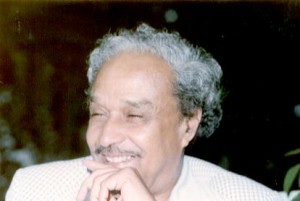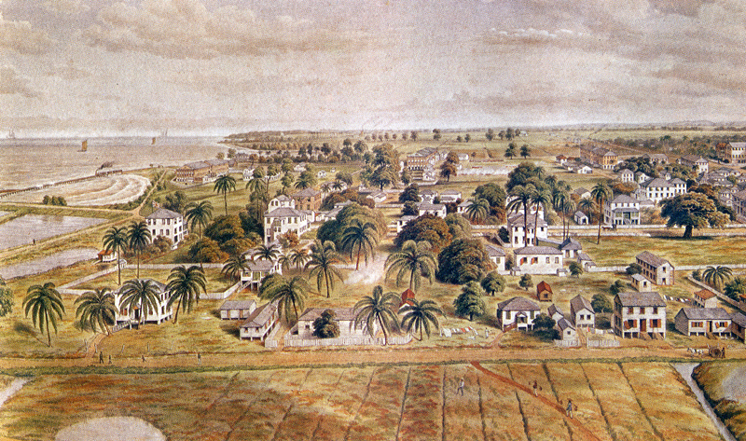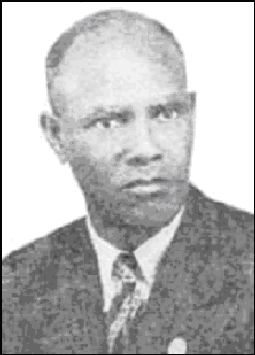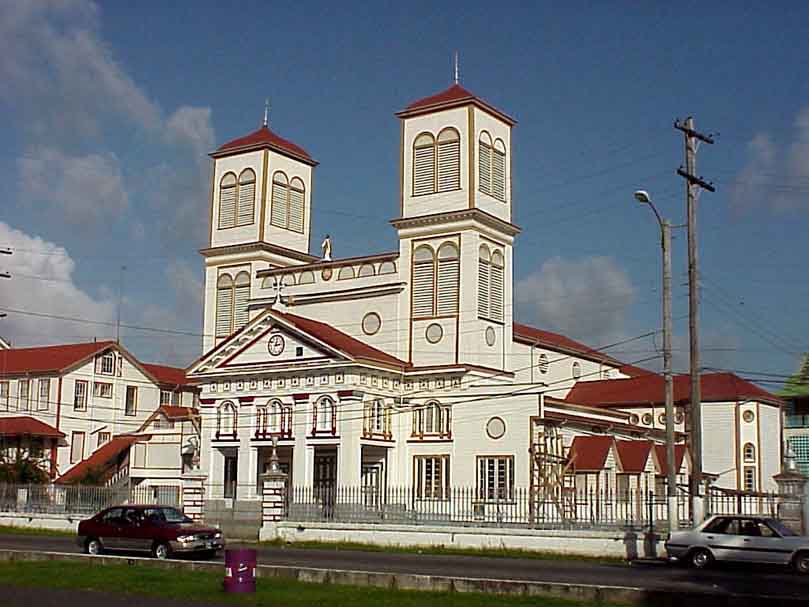 Theodore Wilson Harris, born March 24, 1921 in New Amsterdam, Berbice on what was then the colony of British Guiana, grew up to become one of the most famed Guyanese writers and one who, in recognition of his outstanding literary career, at 89-years-old was knighted by the British monarch.
Theodore Wilson Harris, born March 24, 1921 in New Amsterdam, Berbice on what was then the colony of British Guiana, grew up to become one of the most famed Guyanese writers and one who, in recognition of his outstanding literary career, at 89-years-old was knighted by the British monarch.
The litmus test of young literature undergrads, Harris’ work has been described as challenging and rewarding by critics, and he has been praised for his singularly unique and innovative use of language to express his stories; stories that especially tell of experiences from the Guyana landscapes and the struggles of colonial and post-colonial peoples and their societies.
According to ‘Wilson Harris in conversation with Michael Gilkes (The Uncompromising Imagination)’: “Language possesses resources which one has to sense as coming not only from within oneself, but from outside, from the land itself, from the rivers, from the forests. And also from those persons and those cultures that existed in that landscape and have left their trace.”
His works have been the subject of endless essays, interviews and biographies over the years.
Harris arrived in Georgetown and attended Queen’s College (1934-1939) before studying land surveying and working as government land surveyor in 1942. He became senior surveyor in 1955.
It was this career that would place Harris within the natural Guyanese interior and the Amerindians, its primary society, to inform his experiences and help influence his writings.
During his years as surveyor, Harris would become a regular contributor to the literary journal of the day in British Guiana, writing poems, essays and stories, along with other notable Guyanese literary luminaries such as Ivan Van Sertima, Sidney Singh and Martin Carter.
“Fetish”, (1951) his first publication, was a book of poems under the pseudonym Kona Waruk – a hard-to-ignore possible allusion to an interior location of a similarly sounding name. He continued his writings for the journal until 1961, after he moved to England in 1959 following the break-up of his first marriage. He later married Scottish writer Margaret Burns who died in January 2010.
Harris published his first and most well-known novel “Palace of the Peacock” in 1960, breaking onto the British literary scene just one year after he emigrated. This was to be followed by “The Guyana Quartet”, which includes “The Far Journey of Oudin” (1961), “The Whole Armour” (1962), and “The Secret Ladder” (1963). He has written some 23 novels, including his most recent, “The Ghost of Memory” (2006)
Harris has also received accolades for his non-fiction and critical writings, leading to honorary doctorates from prestigious international universities. He was also awarded the inaugural Guyana Prize for Literature in 1987 and the Guyana Prize for Literature Special Award in 2002.
In England, where he continued to write, his fame led to lectures as visiting professor and writer in residence at various leading universities until his retirement. His son, Professor E. Nigel Harris, is current UWI vice-chancellor.
When Sir Wilson was asked in an interview what he thought his knighthood meant for other Caribbean writers, he replied:
“It’s important in the sense that these knighthoods are hardly given to writers. They’re hardly given to conventional writers, and a writer like myself is hardly given a knighthood. So I feel that this is an encouragement to other writers in the region to persist in their work, even if they feel that what they are doing is not popular, because in the long run it may tell on their behalf. It’s a question of the reality of the arts. The arts have to be pursued irrespective of what people think. And any Caribbean writer who has been working seriously should continue to do that and leave the rest to be judged by people who appreciate the importance of what they’re doing.” (Guyana Times Sunday Magazine)



